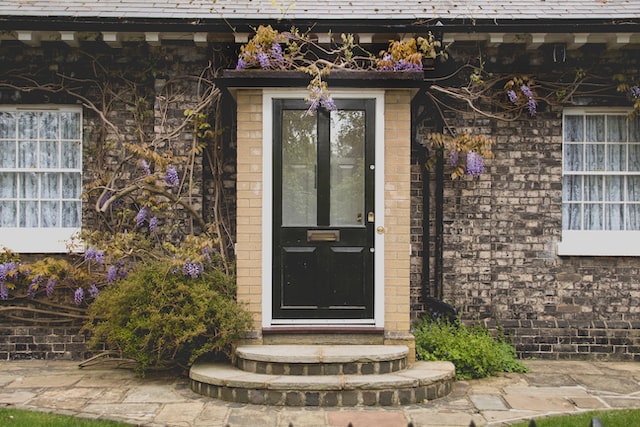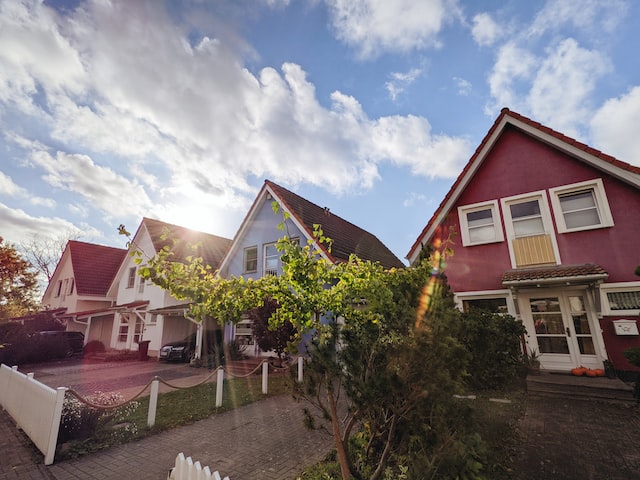One of the most valuable assets that an investor may have is a valid real estate license in the present market. Nevertheless, the privileges of having such a license do not come for free. So how much does it cost to get a real estate license? In fact, the cost to get a real estate license might be quite different depending on where you reside. It is possible that the first year’s expenses will be more than $3,000. Keeping things as they are throughout the course of a career also demands a significant amount of money.
In the long term, gaining experience in the real estate industry as an agent can help you become a more successful investor. The acquisition of a real estate license might significantly improve your access to essential resources, networks, and information in the real estate industry. And what exactly constitutes an advantage if it is not a benefit that is enjoyed by the majority of people?? However, the price is somewhat steep, which takes a lot of people by surprise.
Obtaining a license to practice real estate might be beneficial to your investment company, but only if you have a solid understanding of the industry before you start. You are going to have to exert a great amount of work because of the new legislation and the higher fees that have been implemented. This comprehensive guide will walk you through what you may expect after you have earned your license to practice real estate.
Let’s get started with our Real Estate practice exam to pass the exam and obtain your license.
Cost To Get a Real Estate License

Obtaining a license to practice real estate comes with a variety of associated costs. It is a common misunderstanding that the sole payments are for the certification procedure; nevertheless, the procedure is far more complicated. In order to get a license to invest in real estate, prospective investors are required to participate in the relevant courses, submit an application to take the test, and even take on marketing commitments.
“Be careful of hidden expenses when looking to get a real estate license,” suggest the experts at Loan Advisor. “These fees include parking charges, registration costs, maintenance deposit, and preferred location charges (PLC).” Each of these components can need a certain amount of financial support. Consider the following costs that must be incurred in order to receive a license to sell real estate:
Education ($200 to $1,000)
It is not unheard of for a state to establish its own requirements, or, to put it another way, prerequisites, for persons who want to become licensed real estate agents in that state. In particular, those who are considering taking the state exam are expected to have finished a specified amount of preparation before they may do so. In addition, the minimum amount of “credit hours” required to graduate high school varies widely from state to state, ranging from 63 in Florida to 180 in Texas.
It is essential to keep in mind, however, that the costs associated with satisfying the educational requirements of each state might vary just as much as the minimum number of required hours. It is not impossible to get a “good” education for less than two hundred dollars.
On the other hand, the proverb that “you get what you pay for” is absolutely correct. The lowest possible price is estimated to be somewhere in the neighborhood of a few hundred dollars. On the other hand, the cost of a comprehensive education that satisfies the requirements of your state and prepares you for the examination might easily exceed $1,000.
According to Tam Le, the creator of Steamaster, the out-of-pocket costs might potentially exceed around $500. On the other hand, in recent times I’ve seen a few individuals get Groupon discounts for as little as $55 for an online course. You will still be required to make payments for items like your membership and licensing. If you are interested in having a more engaging educational experience, you have the option of enrolling in one of many traditional institutions.
The following is an in-depth look at many of the states that are considered to be the most popular for real estate licenses:
- Texas: In Texas, the usual cost of a fundamental real estate license education package is between $400 and $600. This fee is determined by the state. The majority of the time, the training included in these packages is sufficient to fulfill the requirement of 180 hours.
- California: Real estate license applicants in California are required to complete 135 hours of real estate classes that have been approved by the state. These classes often cost close to $700. Live lectures, simulated tests, and course materials are often included within these pricing ranges.
- Florida: In Florida, the cost of obtaining a real estate license is around $500 and includes 63 hours of required classroom instruction. People living in this state might expect to spend anywhere from $400 to $700, despite the fact that costs can fluctuate.
State Licensing Exam ($85 to $200)
The cost of the state licensing test is not included in any of the training programs that I am aware of that are designed to prepare you for the exam but the cost of the exam is included. As a consequence of this, anybody who is interested in determining how much it costs to become a fully licensed real estate agent should account for the cost of the exam individually in their budget.
The cost of state licensing tests, similar to the tuition for real estate classes that you have paid for up to this point, will range. The good news is that the test itself won’t cost nearly as much as the preparation classes you have to take in order to pass it.
The normal examination required to get your state license may set you back anywhere from $85 to $200. On the other hand, the expenditures associated with the examination are not one-time expenses. Those individuals who are successful on their very first attempt will be permitted to go to the following level, which is the cost.
Consequently, persons who fail their first test are given the opportunity to retake it, but they must pay a fee to do so. I implore you to give this current period of your study your whole attention. It will not only set the stage for the rest of your professional life, but it will also free you from the obligation of having to repeat the examination for the state license.
Background Check ($50 to $100)
In the event that you are granted an active real estate license, you will be granted access to information that is vital. On the other hand, the duty that will follow you from the moment you receive your license is far more significant. If nothing else, licensed real estate agents have access to any property that is listed on the Multiple Listing Service (MLS).
Given the remarkable access they have to dwellings that aren’t even their own, it is only logical that licensed real estate agents be subjected to background checks. However, in order to become a licensed agent, one must first pass a background check conducted by the FBI, which, in contrast to everything else on this list, costs money.
Your fingerprints and your Social Security number will need to be forwarded to the relevant authorities in order to complete the process. As a consequence of this, the costs associated with the processing of each individual check are your responsibility. Thankfully, the cost of doing a background check is not too expensive, ranging between $50 and $100.
Hanging License With A Broker (Varies)
In the majority of jurisdictions, I’m aware of, newly licensed real estate agents are required to work for a minimum of two years with a brokerage before they may practice independently. The majority of brokers will “take them under their wing” and “show them the ropes” in this manner when they first become certified agents. It is one of the most efficient ways for newly licensed agents to get the necessary experience in a challenging industry, making it one of the most useful approaches overall.
Having said that, it is important to keep in mind that participating in this activity will cost you. On the other hand, the price you pay to hang your license with a broker is more accurately described as a fee than a cost. In addition, brokerage fees might be rather different from one company to the next, much like practically everything else on this list.
You need to specifically plan for two costs: a monthly “desk fee” and a percentage of your commission on each transaction. Both of these costs will be deducted from your earnings. Because agent commissions often range from six to eight percent of a transaction, the latter may be a tough “pill to swallow.” That amounts to a savings of almost $7,000 on a home that costs $100,000.
And if most brokerages want a cut of the activity, then even a small percentage may become a sizable amount over the course of the transaction; however, I am getting off-topic here. The majority of consumers are not prepared to part with a substantial amount of their commission, which is why certain brokerages are willing to accept up to fifty percent of it.
There are certain brokers who would charge you a desk fee of up to $1,500 each and every month. For those of you who are not acquainted with the term “desk fee,” it refers to the cost of renting out office space. The broker will, for a little fee, provide you with an office space and a desk at which you may do business; therefore, the term. Although often offered at a predetermined and constant rate, the cost of a desk might vary greatly.
Insurance for Errors and Omissions ($350 to $400)
As Investopedia so eloquently puts it, “errors and omissions insurance is a type of professional liability insurance that protects organizations and their staff or people against claims brought by customers for poor work or negligent behavior.” Errors and omissions insurance protects organizations and their staff or people against claims brought by customers for poor work or negligent behavior. Errors and omissions insurance often provides coverage for legal bills as well as any settlements up to the amount that is specified in the insurance contract.”
Every registered real estate agent needs to have mistakes and omissions insurance since the real estate market may be very sensitive to even seemingly little transactions and the results can have significant ramifications. In addition, the brokerage will not pay for any of your out-of-pocket costs. As a direct result of this, you need to include an annual allocation of at least $400 in your budget. Your license will be immediately revoked in the event that your errors and omissions insurance policy has expired.
National Association of Realtors Membership ($150/year)
Cost estimates range between a one-time registration cost and $150 each year.
It is fairly unusual for brokers to require that their agents join the local Realtor board associated with the brokerage they work for. As a consequence of this, real estate agents sign up to be members of the National Association of Realtors (NAR) and have access to a wide array of tools and services, such as the multiple listing service (MLS). And the Multiple Listing Service (MLS) is one of the most helpful tools that brokers all around the nation have at their disposal. On the other hand, as you would expect, none of this comes at a cost.
According to the official website of the National Association of Realtors, the membership dues for 2021 and 2022 will be $150 for each individual member. This fee is billed to all active REALTOR® Associate members by the major local organization that they belong to, and it is due to NAR by January 1st of each year.” This is in addition to a registration fee and the cost of an ethics class, which together come to less than one hundred dollars.
Operating Expenses ($500 -$1,000)
As an investor in real estate, you should prepare yourself to pay a range of business expenses in order to ensure the smooth operation of your company. These costs include but are not limited to, rent for office space, cell phones, internet access, computer software, meetings with clients, and presents for clients. In its most basic form, company expenses consist of everything that you need to purchase in order to fulfill your obligations as a real estate agent.
Your present real estate firm structure, the number of staff members or partners you have, and the number of clients you are willing and able to take all have the potential to have a significant impact on the values of these properties. The location is also important since the costs of getting a business off the ground vary from market to market.
Even though business expenses won’t be spent until much later in the licensing process, they are nevertheless very important to take into account when determining whether or not the opportunity will be profitable in the long run.
Marketing Expenses ($1,000)
The process of marketing yourself as a real estate agent is the most important step to take once you have completed the schooling and certification requirements for obtaining a real estate license. Taking this step requires making potential clients aware of what it is that you do and how you can aid them. If you want to be a real estate agent, some of the costs you’ll need to include in your budget include getting business cards, creating a website, promoting on social media, printing flyers, and even sending out direct mail pieces.
While each of these charges may seem to be little when seen separately, the total amount that they consume from a marketing budget may quickly become significant. The most important thing to take away from this is the fact that real estate agents have a great degree of leeway in terms of marketing. Not only is it possible to recycle some of the components, but there are also a number of low-cost marketing possibilities available (such as social media or word-of-mouth referrals).
Costs of Continuing Education ($50-$300)
Your education in real estate will be ongoing over the course of your career. Post-licensing education and specialized instruction pertaining to certain subfields of the real estate business are both covered in this package. Many individuals believe that the cost of continuing education for real estate licenses is well worth the investment since there is always something new to learn in an ever-changing industry. In other words, continuing education for real estate licenses is always worthwhile.
How Much Does It Cost to Get a Real Estate License By StateF?

It’s crucial to keep in mind that the following costs for obtaining a real estate license are merely estimates based on averages. The cost of obtaining a license for a salesperson was used as the foundation for these statistics rather than the cost of obtaining a license for a broker. Because brokers are subject to additional educational requirements in addition to paying state licensing fees, broker licenses are often more costly than salesperson licenses.
The following table details the overall cost, as well as the license fee and pre-licensing schooling requirements for each state:
|
Alabama License Fee: $220 Pre-License Education: $300-$400 Total: $600 |
MaineLicense Fee: $121 Pre-License Education: $450 Total: $571 |
OregonLicense Fee: $300Pre-License Education: $375Total: $675 |
AlaskaLicense Fee: $355 Pre-License Education: $375 Total: $730 |
MarylandLicense Fee: $110 Pre-License Education: $300 Total: $410 |
PennsylvaniaLicense Fee: $107Pre-License Education: $350Total: $457 |
ArizonaLicense Fee: $300 Pre-License Education: $400 Total: $700 |
MassachusettsLicense Fee: $103 Pre-License Education: $350 Total: $453 |
Rhode IslandLicense Fee: $100Pre-License Education: $325Total: $425 |
ArkansasLicense Fee: $197 Pre-License Education: $400 Total: $597 |
MichiganLicense Fee: $88 Pre-License Education: $250 Total: $338 |
South CarolinaLicense Fee: $123Pre-License Education: $500Total: $623 |
CaliforniaLicense Fee: $400 Pre-License Education: $400 Total: $800 |
MinnesotaLicense Fee: $175 Pre-License Education: $600 Total: $775 |
South DakotaLicense Fee: $225Pre-License Education: $1,000Total: $1,225 |
ColoradoLicense Fee: $615 Pre-License Education: $500 Total: $1,115 |
MississippiLicense Fee: $135 Pre-License Education: $250 Total: $385 |
TennesseeLicense Fee: $133Pre-License Education: $500Total: $633 |
ConnecticutLicense Fee: $305 Pre-License Education: $450 Total: $755 |
MissouriLicense Fee: $201.05 Pre-License Education: $400 Total: $601.05 |
TexasLicense Fee: $320Pre-License Education: $475Total: $795 |
DelawareLicense Fee: $89 Pre-License Education: $600 Total: $689 |
MontanaLicense Fee: $135 Pre-License Education: $400 Total: $535 |
UtahLicense Fee: $152Pre-License Education: $450Total: $602 |
FloridaLicense Fee: $150 Pre-License Education: $200 Total: $350 |
NebraskaLicense Fee: $285 Pre-License Education: $400 Total: $685 |
VermontLicense Fee: $100Pre-License Education: $300Total: $400 |
GeorgiaLicense Fee: $170-$340 Pre-License Education: $350 Total: $540-$690 |
NevadaLicense Fee: $245 Pre-License Education: $250 Total: $495 |
VirginiaLicense Fee: $170Pre-License Education: $500Total: $670 |
HawaiiLicense Fee: $85 Pre-License Education: $650 Total: $739 |
New HampshireLicense Fee: $225 Pre-License Education: $360 Total: $585 |
WashingtonLicense Fee: $146.25Pre-License Education: $400Total: $546.25 |
IdahoLicense Fee: $160 Pre-License Education: $600 Total: $760 |
New JerseyLicense Fee: $160 Pre-License Education: $360 Total: $520 |
West VirginiaLicense Fee: $196Pre-License Education: $550Total: $746 |
IllinoisLicense Fee: $125 Pre-License Education: $450 Total: $575 |
New MexicoLicense Fee: $240 Pre-License Education: $700 Total: $940 |
WisconsinLicense Fee: $144Pre-License Education: $325Total: $469 |
IndianaLicense Fee: $121 Pre-License Education: $550 Total: $671 |
New YorkLicense Fee: $70 Pre-License Education: $350 Total: $420 |
WyomingLicense Fee: $480Pre-License Education: $400Total: $880 |
IowaLicense Fee: $125 Pre-License Education: $425 Total: $575 |
North CarolinaLicense Fee: $96 Pre-License Education: $475 Total: $571 |
LouisianaLicense Fee: $120Pre-License Education: $350Total: $470 |
KansasLicense Fee: $75 Pre-License Education: $225 Total: $400 |
North DakotaLicense Fee: $230 Pre-License Education: $450 Total: $680 |
OklahomaLicense Fee: $116 Pre-License Education: $425 Total: $541 |
That’s how much a real estate license cost! You can read more about other requirements for getting a real estate license at: Real Estate License Requirements By State.
How To Finance The Real Estate License Cost?

When it comes to paying the costs and fees related to becoming a real estate agent, prospective agents have a number of different choices to choose from. A real estate license is a relatively small investment considering the potential earnings that come with being a real estate agent.
It is comforting to know that these expenditures may be deducted from one’s taxable income. These fees will also be recouped inside your first purchase, so don’t worry about that. You may increase your income by working another job, or you can save money by working part-time at another employment. The following are some of the ways in which the expenses of real estate agents may be reduced:
Real Estate Costs are Tax Deductible
As a real estate agent, you are the owner of your own firm. You are a person who is self-employed in some capacity. In other words, you are in charge of your own time and schedule. As a consequence of this, the costs that you bear to maintain and operate your company are considered to be business expenses.
When it comes time to file your taxes, you may be able to deduct the commissions and other costs that come with being a real estate agent. There is a possibility that you might deduct the expenses of running your business from your taxes. They are not one-time expenses that may be deducted from your budget and then ignored. So, what exactly qualifies these expenses as tax deductions? It’s possible that they’ll cover pre-licensing classes, brokerage fees, and initial business expenses.
Closing Your First Transaction
The money you earn from your very first check-in commission will be enough to pay for the fees associated with being an agent. According to Zillow.com, the average price of a home in the state of California in the year 2020 was $578,267. An annual salary of $17,348 might be expected from a commission agent who works on a 3 percent basis.
The first transaction will pay the cost of entry as well as a little additional amount. You may also put that money toward paying for any unexpected business expenses that may come up. Your income from real estate transactions will increase according to the number of deals you successfully complete.
Working Part-Time to Support Your Earnings
People who already have full-time jobs frequently start careers as real estate agents because it allows them to earn more money. A reliable source of revenue may be maintained by acting as a real estate agent on a part-time basis. As a full-time agent, your only potential source of income is the deals you are able to successfully close. As a consequence of this, you may be able to lessen the burden and the entrance costs if you take on another job.
The investment of time is one of the negative aspects. As a part-time agent, you have the responsibility of putting the quality of your work ahead of the quantity of hours you put in. To put it another way, you need to make the most of the time you have.
Spend Less and Save More
Now that you are aware of how much it costs to be a real estate agent, you may decide to make conserving money one of your priorities. Whenever you have spare cash, you need to put some of it away in the form of a savings account. As a direct consequence of this, you will be able to put your whole effort into your academics as well as your career.
If, on the other hand, you are interested in working a full-time job, you should put some money down before earning your real estate license. It is recommended that you put aside at least three months’ worth of living expenses in addition to the money needed to pay the fees associated with becoming a real estate agent. If you do not find a good deal right immediately, you will have this safety net, and it will enable you to continue living the way you are used to living even if you do not find a bargain.
Is It Worth the Cost to Get Your Real Estate License?
A career in real estate is one of the most sought-after options. It is the kind of employment that allows you to choose your own schedule and chart your own course. When you work as an agent in real estate, you will receive out of it what you put into it. In the long term, putting in a lot of work pays off. It is not necessary for you to spend eight hours a day working in an office, and you have the opportunity to interact with different individuals on a regular basis.
Despite the fact that no career in real estate comes with a success guarantee, those who put in the necessary amount of time and effort have the potential to make a name for themselves in the industry. After many years of toiling at and cultivating a clientele, an agent’s potential earnings may reach well into the six figures.
A college degree, typically earned after two to four years of study, is required for many careers. The annual tuition cost for in-state students is on average $10,740, while the annual tuition cost for students attending from other states is on average $27,560. This fee does not cover the cost of textbooks, housing, or any other expenses that are associated with attending college. You can see How Long Does It Take To Get Real Estate License In 2022?
However, the total cost to become a real estate agent is often less than $700. This amount covers the cost of courses, a background check, the cost of the exam, and the cost of the license. Students now have the ability to study whenever and wherever they choose since a significant number of educational institutions now offer their courses totally online. Because it is self-paced, you may complete it whenever it is convenient for you, anywhere from three months to a year.
You might further your career by enrolling in more online classes and obtaining other certifications, such as those required to become a broker or appraiser. You are entirely responsible for your own professional progress.
Conclusion
How much does it cost to get a real estate license? In fact, the cost of a real estate license can be considered a remarkable investment. Therefore, try your best so that these costs are worth your effort.



